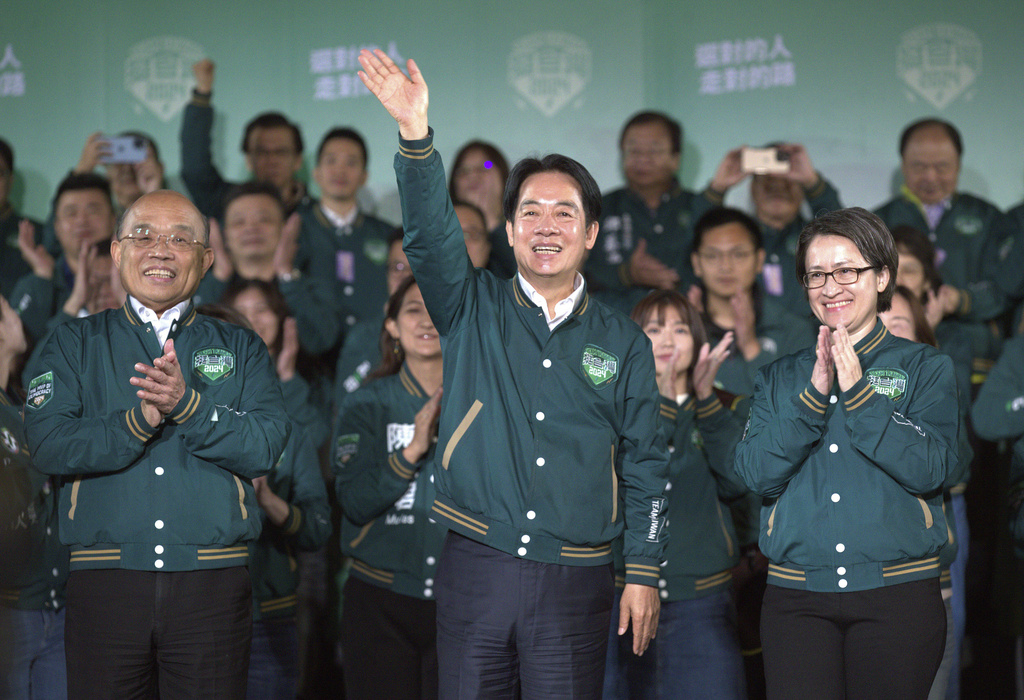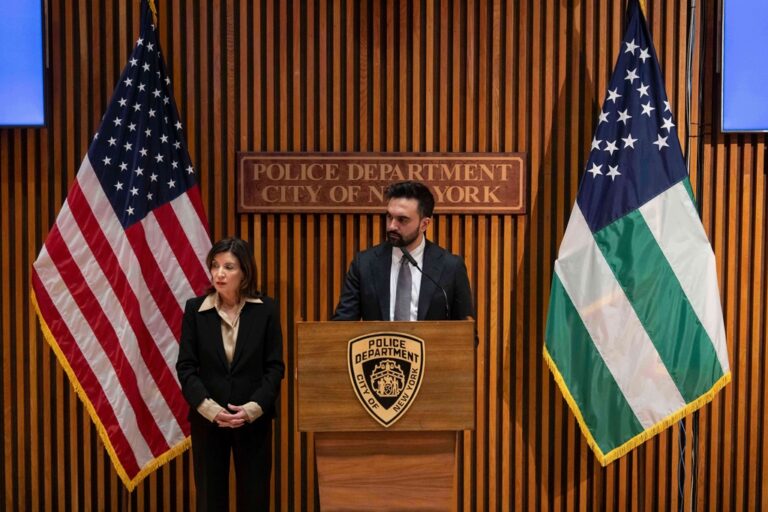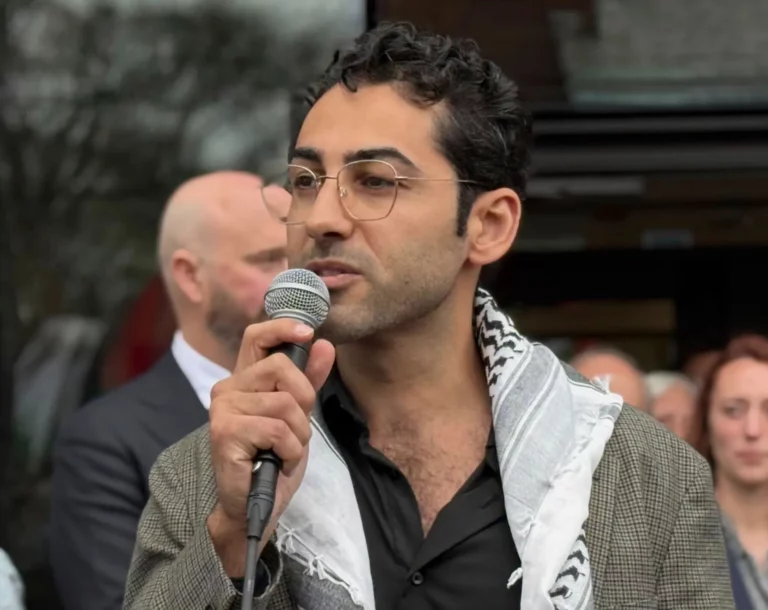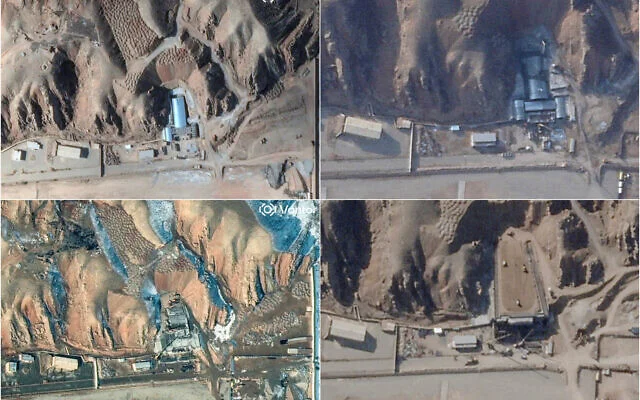Taiwan’s incoming president is promising more of the same. The question is what that will bring, not only for Taiwan but also for its relations with China, the United States and others with an interest in the island of 23 million people that supplies many of the advanced semiconductors that keep the world running.
Lai Ching-te, the winner of Saturday’s presidential race, has pledged to continue the policies of his predecessor Tsai Ing-wen, who built up the military and strengthened ties with the United States and other sympathetic countries. He has also pledged to do a better job of addressing domestic issues such as affordable housing and economic inequality.
The new administration will have to manage relations with China, the island’s would-be ruler across the Taiwan Strait; with the United States; and with a divided legislature, as it tackles economic and other challenges at home.
CROSS-STRAIT RELATIONS
The candidate that China demonized during the campaign — a Chinese spokesperson called Lai a “destroyer of peace” — won. So what does China do now?
Analysts expect some kind of show of displeasure but say the strongest signal may not come until May, when Lai takes office. It could be military exercises around the island, restrictions on imports from Taiwan, or both.
China has done both in the past, notably holding major drills following the 2022 visit to the island of then U.S. House Speaker Nancy Pelosi. It sends fighter jets and warships into the skies and waters around Taiwan on almost a daily basis, a constant reminder of the threat of invasion if the government refuses to become part of China.
China’s stated preference is what it calls “peaceful reunification.” That outcome appears increasingly unlikely as Taiwanese reject the idea of becoming part of China, particularly after the curbs on democracy and freedoms that China imposed following massive protests in Hong Kong.
A former U.S. government official said that China’s urge to punish Taiwan will be blunted by two considerations.
“One is that Beijing wants to restrain President-elect Lai, not provoke him,” Danny Russel, who was assistant secretary of state for East Asia and the Pacific in the Obama administration, said in a commentary.
“The other factor is Beijing’s reluctance to provoke Washington just as the U.S. heads into the turbulent campaign season,” said Russel, now vice president of the Asia Society Policy Institute. “Xi Jinping has invested considerable effort and credibility in tamping down tensions with the West, both to lower China’s profile in an American election year and to buy space to deal with myriad problems at home.”
US RELATIONS AND DIPLOMACY
U.S. President Joe Biden has sent an unofficial delegation comprised of former senior officials to Taiwan for face-to-face talks with the incoming administration, signaling continued support.
Analysts expect Lai’s Democratic Progressive Party (DPP), with eight consecutive years of working relations with Washington, to build upon the existing friendship to deepen relations, including on trade, investment and the military.
“The personnel on both sides know each other, these are familiar faces” says Wen-Ti Sung, a fellow with the Washington, D.C.-based Atlantic Council. “A continuation of the DPP into a third term will mean that the warming-up of U.S.-Taiwan ties that we saw in the last eight years will likely continue apace under the next Lai Ching-te administration.”
While the U.S. does not have official diplomatic ties with Taiwan, it is the island’s chief source of military hardware and cooperation. U.S. law requires Washington to treat all threats to the island as matters of “grave concern.”
Lai is likely to continue to seek partners and unofficial diplomatic ties around the world despite Beijing’s efforts to isolate Taiwan.
During Tsai’s eight-year tenure, Taiwan lost 10 formal diplomatic allies to China’s sway in what some call “checkbook diplomacy.” In the latest sign of China’s pressure and influence in the Pacific Island region, Nauru on Monday said it is switching diplomatic ties from Taiwan to China. This follows Solomon Islands and Kiribati, which both switched sides in 2019.
China and Taiwan have been locked in a battle for diplomatic recognition since they split amid civil war in 1949, with Beijing spending billions — and increasing firepower — to win recognition for its “one-China” policy.
In the election campaign, Lai called for reducing reliance on China and diversifying trade with other nations. Analysts say Taiwan will likely focus on building closer ties with the U.S., Europe, Japan and Australia, among others.
DOMESTIC POLITICS
The Democratic Progressive Party party lost its majority in Taiwan’s parliament, known as the legislative Yuan, in Saturday’s election by one seat, to the opposition Kuomintang, or Nationalist Party. The DPP won 51 seats, down from the overwhelming support the party had in the 2020 elections with more than 60 seats, a comfortable majority in the 113-seated parliament.
Neither holds a majority, giving the Taiwan People’s Party — a relatively new force that won eight of the 113 seats — a possible swing vote on legislation.
“That’s going to lead to a lot more, higher transactional costs in terms of deal-making to get a lot of legislative bills through with the opposition parties,” said Sung at the Atlantic Council. “That may create some potential challenges in terms of efficiency of governance going forward.”
The incoming government is faced with a host of domestic issues, including a slowed economy since the pandemic, and longer term challenges such as inequality, housing affordability and unemployment. Among the urgent issues Lai mentioned during his victory speech include the financial sustainability of Taiwan’s labor and health insurance and energy transition.
The two major parties differ on their approach to spurring economic growth, with the Nationalists supporting closer economic ties with China. Lai pledged to build consensus during his post-election news conference, acknowledging the loss of his party’s hold on parliament.
“The elections have told us that the people expect an effective government as well as strong checks and balances,” he said.
(AP)











3 Responses
If China wants peace, they can make an offer (perhaps similar to the relationship between Canada and Great Britain, but “rules” by Charles III, and so closely allied you have too look closely to see they are for all purposes separate). In that case, a nationalist on Taiwan is in a good position to accept.
Otherwise, China will have to decide if they want a war (at worst) or a total disruption in relations with the USA (at best), and that depends on whether the current American dysfunctional leadership continues, or if the US returns to the Cold War era of pro-freedom bipartisanship.
nice small place to visit……gobbling up countries seems to be in fashion today……
Akuperma, the UK and Canada are two completely separate countries, and have been since 1931. They are just as separate as the USA and Canada, or the USA and the UK. It just so happens that Canada’s king is also the UK’s king.
This saves money; rather than invest in a whole royal family of its own, it’s cheaper to borrow some other country’s royals, just as some countries use the US dollar as their currency rather than having one of their own. Also, keeping the king an ocean away means there’s less risk of his interfering in Canadian politics. He gets a weekly meeting with the UK PM, but he only sees the Canadian PM maybe once a year, so he has less opportunity to influence government policy.
Evidence of Canada’s independence: When the UK declared war on Germany on Sep-3-1939, Canada held off for a week and didn’t declare war until Sep-10. (The reason was that during that week Canada was officially neutral, so it could receive assistance from the USA without violating the USA’s neutrality. Roosevelt spent that whole week shipping arms to Canada; once it had stocked up, it joined the war and the USA could no longer send anything until two years later, when it joined the war too.)